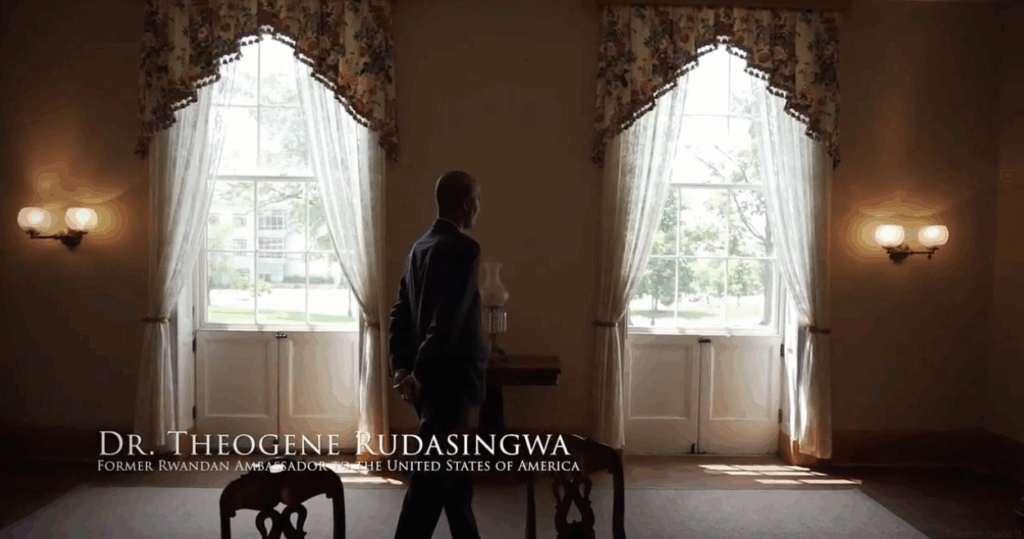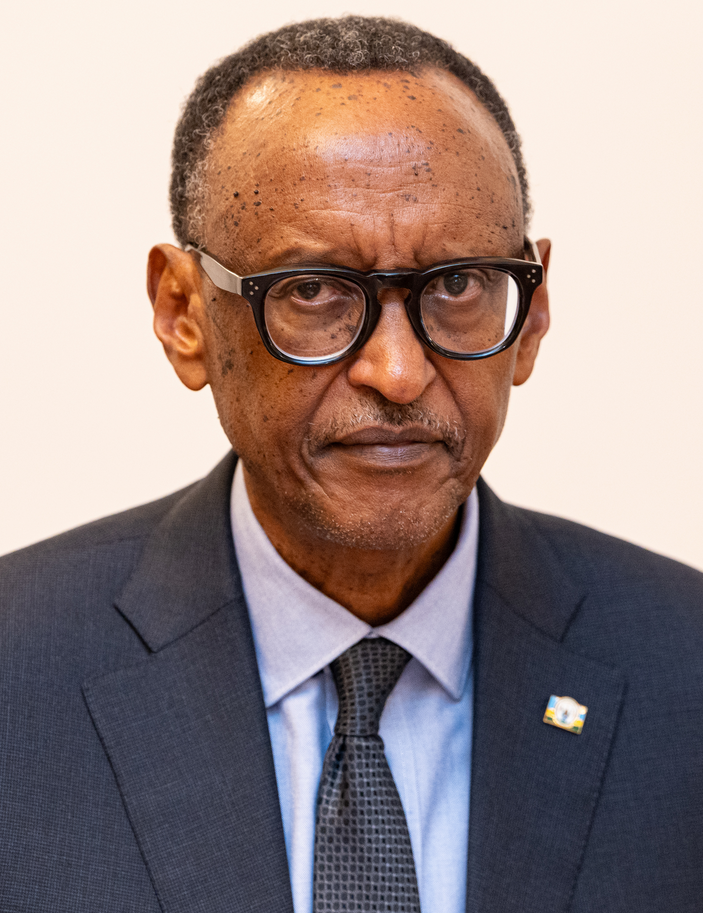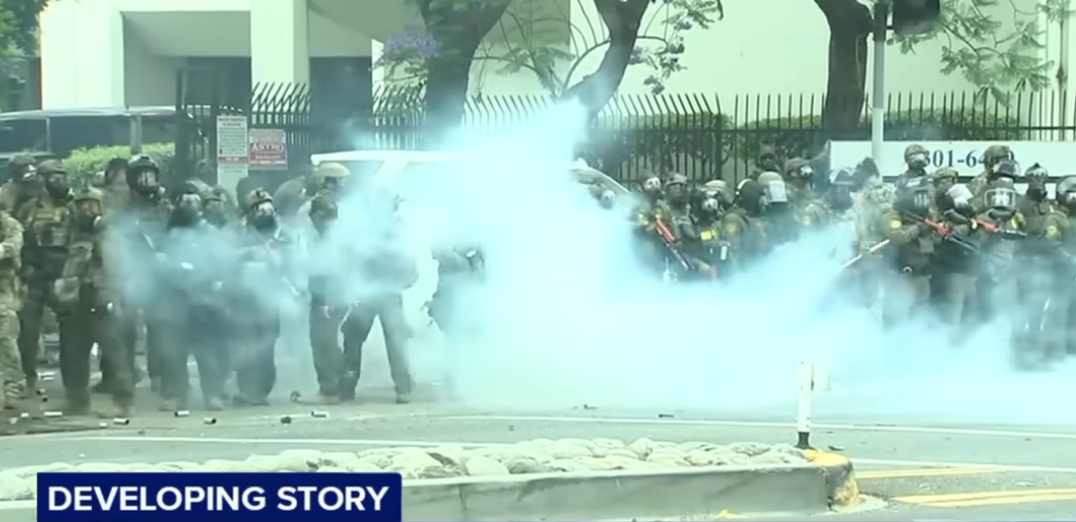The Criminalization Of Dissenting Rwandan Citizens As “Terrorists” And The Betrayal Of Pan-African Ideals
By Dr. Theogene Rudasingwa Editor’s Note: The following is an open letter sent to several African heads of state, sent by former Rwandan Ambassador Dr. Theogene Rudasingwa, regarding the Rwandan government’s recent release of a list of alleged terrorists—which is viewed by many as nothing more than a political enemies hit list of critics to the current regime: To:Their Excellencies,The Heads of State and Government of the East African Community (EAC): H.E. Samia Suluhu Hassan, President of the United Republic of Tanzania H.E. Yoweri Kaguta Museveni, President of the Republic of Uganda H.E. William Samoei Ruto, President of the Republic of Kenya H.E. Évariste Ndayishimiye, President of the Republic of Burundi H.E. Félix Antoine Tshisekedi Tshilombo, President of the Democratic Republic of the Congo H.E. Salva Kiir Mayardit, President of the Republic of South Sudan H.E. Hassan Sheikh Mohamud, President of the Federal Republic of Somalia Your Excellencies, I address you as a fellow East African and as one who has devoted his life to the service of our region — in medicine, diplomacy, education, and public service. Today, I write with deep concern and moral conviction about the Government of Rwanda’s decision to label Rwandan citizens in exile, including myself, as “terrorists” and to impose sanctions without evidence, due process, or lawful adjudication. This act is not merely a domestic affair. It strikes at the very heart of the rule of law, human rights, and Pan-African solidarity, which bind us together as members of the East African Community, the African Union, and the United Nations family. I. The Violation of Foundational Principles The Charter of the United Nations (1945), in Article 1, declares that the foremost purpose of the international community is “to maintain international peace and security and to promote and encourage respect for human rights and for fundamental freedoms for all without distinction.”To criminalize peaceful dissent and to weaponize counter-terrorism language against political opponents is to violate the very spirit of that Charter, replacing dialogue with defamation and justice with fear. The Constitutive Act of the African Union (2000), in Article 3(h), commits every Member State “to promote and protect human and peoples’ rights in accordance with the African Charter.” Article 4(m) emphasizes respect for “democratic principles, human rights, the rule of law, and good governance.”When a government equates criticism with terrorism, it betrays that African covenant of governance through consent, not coercion. The Treaty for the Establishment of the East African Community (1999) in Article 6(d) enshrines “good governance including adherence to the principles of democracy, rule of law, accountability, transparency, social justice, equal opportunities and protection of human and peoples’ rights.”Furthermore, Article 8(1)(c) obliges Partner States to “abstain from any measures likely to jeopardize the achievement of the objectives of the Community.” By unilaterally branding exiled citizens as terrorists without evidence, judicial process, or regional consultation, Rwanda’s government undermines the integrity and mutual trust on which this Community stands. II. The Spirit of Pan-Africanism Betrayed Pan-Africanism — the moral compass of our continent — teaches that Africans must be free to think, to speak, and to differ without fear. From Nkrumah to Nyerere, from Lumumba to Mandela, our liberation leaders understood that unity without justice is tyranny dressed in national colors. To label critics and exiles as enemies of the state is to resurrect the very colonial tools that enslaved us: censorship, intimidation, and exclusion. It is to betray the Pan-African promise that our unity shall be built upon liberty and mutual respect, not fear and silence. III. The Regional and Moral Consequences History warns us that when nations silence conscience, violence follows. The East African region has bled enough from wars, repression, and forced exile. When one government criminalizes dissent and calls its sons and daughters “terrorists,” the contagion spreads: borders harden, trust collapses, and our dream of an integrated, peaceful East Africa recedes. The precedent now set by Rwanda’s actions threatens: The safety of refugees and exiles across East Africa and worldwide The credibility of our counter-terrorism efforts, which require lawful precision, not political expediency, and The moral standing of our Community as a union founded on freedom, justice, and human dignity. IV. An Appeal to Leadership and Conscience Your Excellencies, leadership is not measured by the fear it inspires but by the truth it upholds.I appeal to you as peers and as custodians of our peoples’ hopes: Let us reaffirm that East Africa will not be a sanctuary for impunity, nor a stage where political persecution hid

By Dr. Theogene Rudasingwa
Editor’s Note: The following is an open letter sent to several African heads of state, sent by former Rwandan Ambassador Dr. Theogene Rudasingwa, regarding the Rwandan government’s recent release of a list of alleged terrorists—which is viewed by many as nothing more than a political enemies hit list of critics to the current regime:

To:
Their Excellencies,
The Heads of State and Government of the East African Community (EAC):
- H.E. Samia Suluhu Hassan, President of the United Republic of Tanzania
- H.E. Yoweri Kaguta Museveni, President of the Republic of Uganda
- H.E. William Samoei Ruto, President of the Republic of Kenya
- H.E. Évariste Ndayishimiye, President of the Republic of Burundi
- H.E. Félix Antoine Tshisekedi Tshilombo, President of the Democratic Republic of the Congo
- H.E. Salva Kiir Mayardit, President of the Republic of South Sudan
- H.E. Hassan Sheikh Mohamud, President of the Federal Republic of Somalia
Your Excellencies,
I address you as a fellow East African and as one who has devoted his life to the service of our region — in medicine, diplomacy, education, and public service. Today, I write with deep concern and moral conviction about the Government of Rwanda’s decision to label Rwandan citizens in exile, including myself, as “terrorists” and to impose sanctions without evidence, due process, or lawful adjudication.
This act is not merely a domestic affair. It strikes at the very heart of the rule of law, human rights, and Pan-African solidarity, which bind us together as members of the East African Community, the African Union, and the United Nations family.
I. The Violation of Foundational Principles
The Charter of the United Nations (1945), in Article 1, declares that the foremost purpose of the international community is “to maintain international peace and security and to promote and encourage respect for human rights and for fundamental freedoms for all without distinction.”
To criminalize peaceful dissent and to weaponize counter-terrorism language against political opponents is to violate the very spirit of that Charter, replacing dialogue with defamation and justice with fear.
The Constitutive Act of the African Union (2000), in Article 3(h), commits every Member State “to promote and protect human and peoples’ rights in accordance with the African Charter.” Article 4(m) emphasizes respect for “democratic principles, human rights, the rule of law, and good governance.”
When a government equates criticism with terrorism, it betrays that African covenant of governance through consent, not coercion.
The Treaty for the Establishment of the East African Community (1999) in Article 6(d) enshrines “good governance including adherence to the principles of democracy, rule of law, accountability, transparency, social justice, equal opportunities and protection of human and peoples’ rights.”
Furthermore, Article 8(1)(c) obliges Partner States to “abstain from any measures likely to jeopardize the achievement of the objectives of the Community.”
By unilaterally branding exiled citizens as terrorists without evidence, judicial process, or regional consultation, Rwanda’s government undermines the integrity and mutual trust on which this Community stands.

II. The Spirit of Pan-Africanism Betrayed
Pan-Africanism — the moral compass of our continent — teaches that Africans must be free to think, to speak, and to differ without fear. From Nkrumah to Nyerere, from Lumumba to Mandela, our liberation leaders understood that unity without justice is tyranny dressed in national colors.
To label critics and exiles as enemies of the state is to resurrect the very colonial tools that enslaved us: censorship, intimidation, and exclusion. It is to betray the Pan-African promise that our unity shall be built upon liberty and mutual respect, not fear and silence.
III. The Regional and Moral Consequences
History warns us that when nations silence conscience, violence follows.
The East African region has bled enough from wars, repression, and forced exile.
When one government criminalizes dissent and calls its sons and daughters “terrorists,” the contagion spreads: borders harden, trust collapses, and our dream of an integrated, peaceful East Africa recedes.
The precedent now set by Rwanda’s actions threatens:
- The safety of refugees and exiles across East Africa and worldwide
- The credibility of our counter-terrorism efforts, which require lawful precision, not political expediency, and
- The moral standing of our Community as a union founded on freedom, justice, and human dignity.
IV. An Appeal to Leadership and Conscience
Your Excellencies, leadership is not measured by the fear it inspires but by the truth it upholds.
I appeal to you as peers and as custodians of our peoples’ hopes:
Let us reaffirm that East Africa will not be a sanctuary for impunity, nor a stage where political persecution hides behind the banner of national security.
Let us remember that at Addis Ababa in 1963, the founders of the Organization of African Unity proclaimed:
“The liberation of Africa is incomplete until the freedom of every African is secured.”
That liberation includes the freedom to speak truth to power, to disagree without fear, and to live without the shadow of unjust accusation.
V. My Humble Request
I respectfully call upon the Summit of Heads of State of the East African Community to:
- Condemn and reject the misuse of counter-terrorism legislation for political repression within the region;
- Mandate an independent EAC inquiry into Rwanda’s publication of “terrorist lists” and sanctions targeting exiled citizens;
- Affirm the principle of due process and fair hearing as indispensable to any security or counter-terrorism measure;
- Reaffirm that dissent is not terrorism, and that every East African has a right to freedom of thought, speech, and association; and
- Call upon the African Union and the United Nations to examine the regional implications of Rwanda’s actions for peace, security, and human rights.
VI. Conclusion
Your Excellencies, the destiny of our continent will be decided not by the strength of our armies, but by the moral courage of our leaders.
If we remain silent while one member weaponizes fear against its citizens, we forfeit the moral foundation of the EAC and betray the sacrifices of generations who fought for Africa’s freedom.
Let the East African Community stand as a family of nations that listens to conscience before coercion, that protects its citizens’ voices, and that leads by example before the world.
As one who loves Rwanda and believes in the promise of East Africa, I stand ready to defend truth with civility, justice with patience, and peace with perseverance.
With profound respect and unwavering hope,
Sincerely,
Dr. Theogene Rudasingwa
Former Ambassador of the Republic of Rwanda to the United States
Physician | Teacher | Author | East African Citizen























